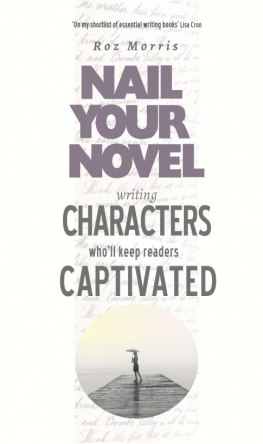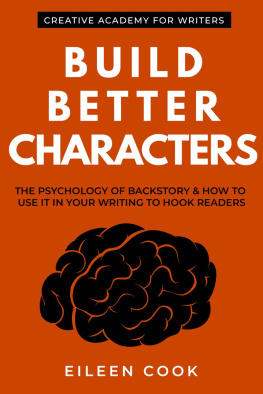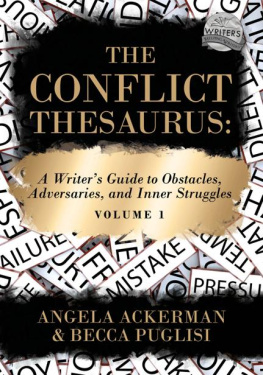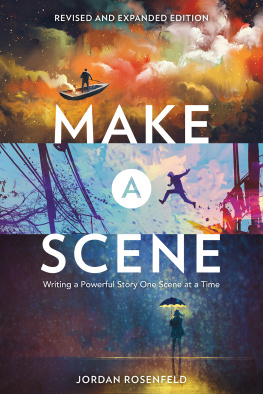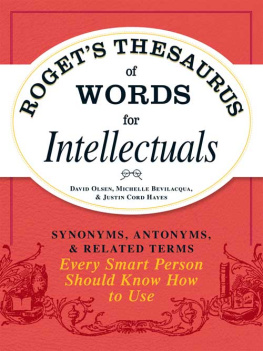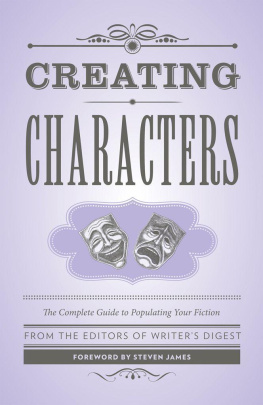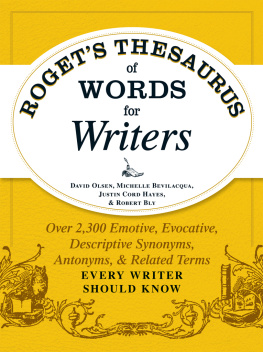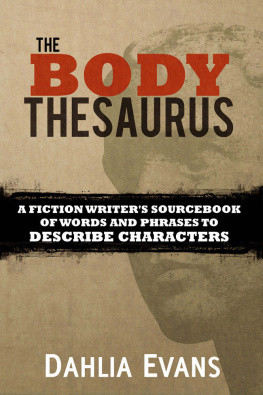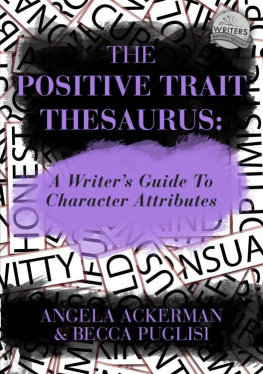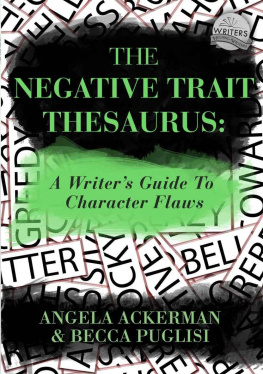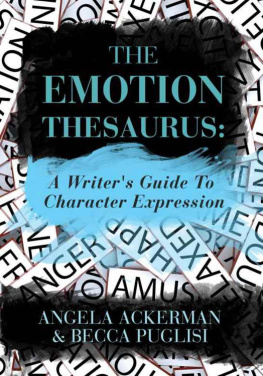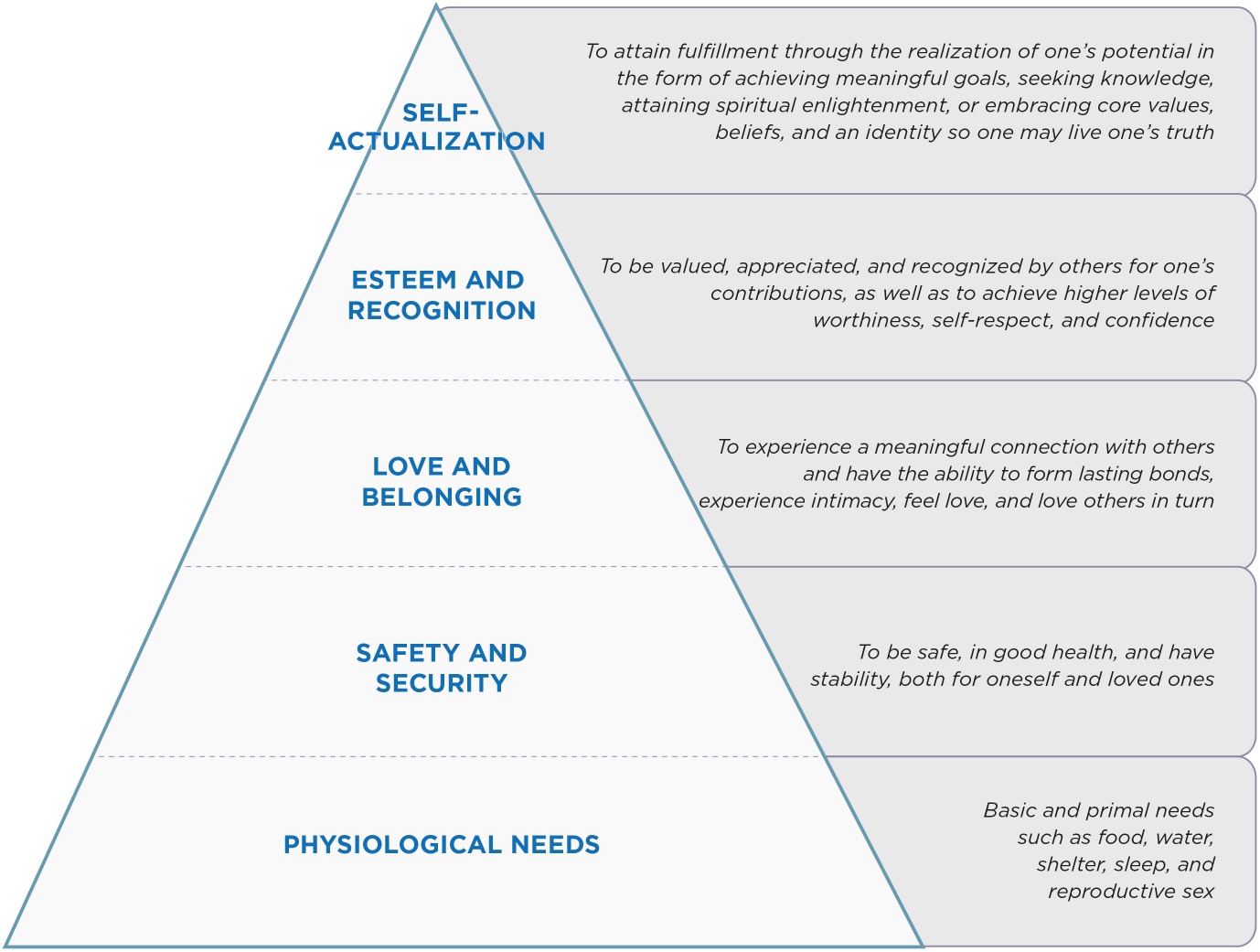Becca Puglisi - The Occupation Thesaurus: A Writers Guide to Jobs, Vocations, and Careers (Writers Helping Writers Series Book 7)
Here you can read online Becca Puglisi - The Occupation Thesaurus: A Writers Guide to Jobs, Vocations, and Careers (Writers Helping Writers Series Book 7) full text of the book (entire story) in english for free. Download pdf and epub, get meaning, cover and reviews about this ebook. year: 2020, publisher: JADD Publishing, genre: Romance novel. Description of the work, (preface) as well as reviews are available. Best literature library LitArk.com created for fans of good reading and offers a wide selection of genres:
Romance novel
Science fiction
Adventure
Detective
Science
History
Home and family
Prose
Art
Politics
Computer
Non-fiction
Religion
Business
Children
Humor
Choose a favorite category and find really read worthwhile books. Enjoy immersion in the world of imagination, feel the emotions of the characters or learn something new for yourself, make an fascinating discovery.

- Book:The Occupation Thesaurus: A Writers Guide to Jobs, Vocations, and Careers (Writers Helping Writers Series Book 7)
- Author:
- Publisher:JADD Publishing
- Genre:
- Year:2020
- Rating:4 / 5
- Favourites:Add to favourites
- Your mark:
The Occupation Thesaurus: A Writers Guide to Jobs, Vocations, and Careers (Writers Helping Writers Series Book 7): summary, description and annotation
We offer to read an annotation, description, summary or preface (depends on what the author of the book "The Occupation Thesaurus: A Writers Guide to Jobs, Vocations, and Careers (Writers Helping Writers Series Book 7)" wrote himself). If you haven't found the necessary information about the book — write in the comments, we will try to find it.
Characters are as complex as people and revealing their inner layers without chunky blocks of pace-stopping description is a challenge. The Occupation Thesaurus can help you unlock one of the best tools in your show-dont-tell writing kit: a characters job.
Occupations are part of our everyday world, meaning they can be used to encourage readers to make associations between a type of work and the person doing it, shortening the get to know the character curve. Whether a person loves or hates what they do, a job can reveal many things, including their priorities, beliefs, desires, and needs. The Occupation Thesaurus will show you how a career choice can characterize, drive the plot, infuse scenes with conflict, and get readers on the characters side through the relatable pressures, responsibilities, and stakes inherent with work.
THINK OUTSIDE THE BOX REGARDING CAREER OPTIONSSelect a job that packs a powerful punch. Inside The Occupation Thesaurus, youll find:
- Informative profiles on popular and unusual jobs to help you write them with authority
- Believable conflict scenarios for each occupation, giving you unlimited possibilities for adding tension at the story and scene level
- Advice for twisting the stereotypes often associated with these professions
- Instruction on how to use jobs to characterize, support story structure, reinforce theme, and more
- An in-depth study on how emotional wounds and basic human needs may influence a characters choice of occupation
- A brainstorming tool to organize the various aspects of your characters personality so you can come up with the best careers for them
Do more with your description and choose a profession for your character that showcases who they are, what they want, and what they believe in. With over 120 entries in a user-friendly format, The Occupation Thesaurus is an entire job fair for writers.
Becca Puglisi: author's other books
Who wrote The Occupation Thesaurus: A Writers Guide to Jobs, Vocations, and Careers (Writers Helping Writers Series Book 7)? Find out the surname, the name of the author of the book and a list of all author's works by series.

